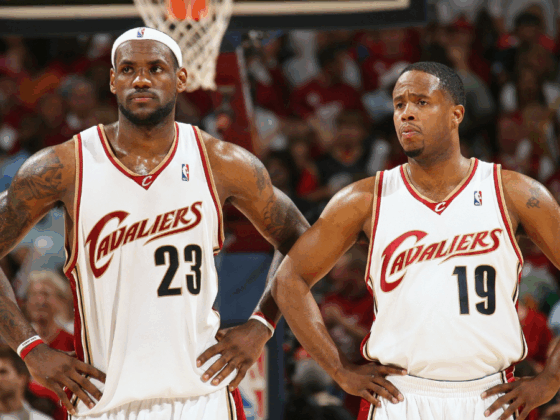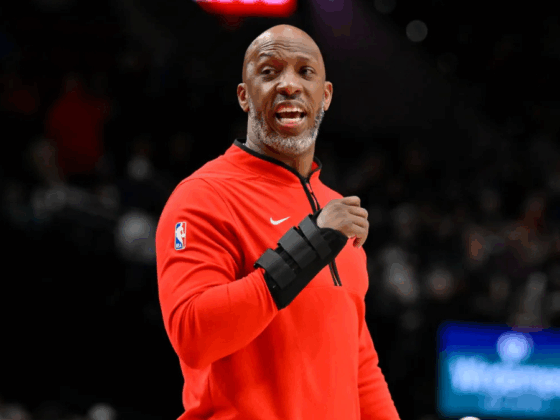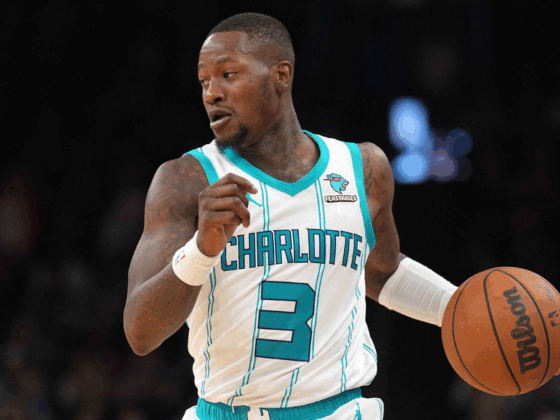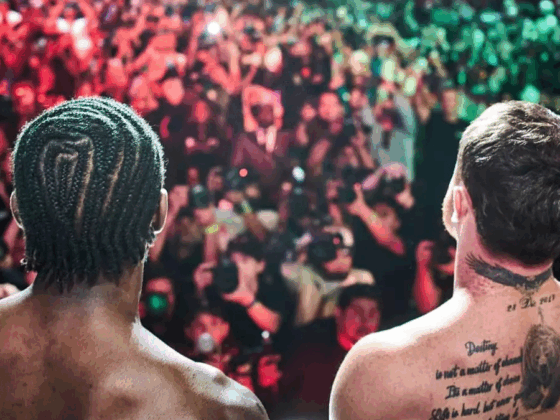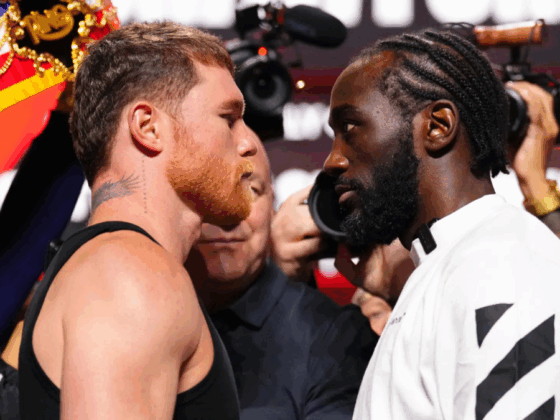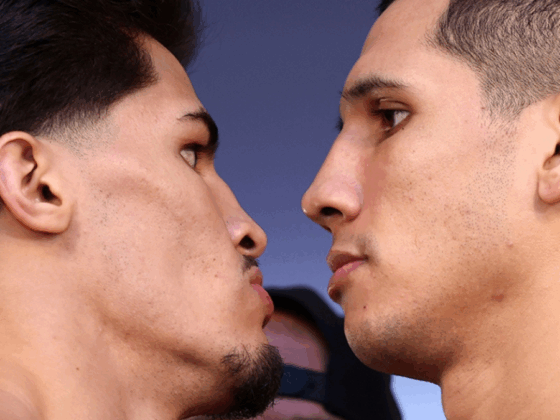
The lives of NBA stars can be hard sometimes, but that’s nothing compared to lives of pro players playing overseas. In the NBA and G League, the hard work of players is rewarded by a good, sometimes great salary and excellent treatment. For players overseas, though, there’s a growing risk – a risk of not getting paid at all. It’s becoming a real issue, especially in Europe. Players often complain via social media, while others realize the situation and move on to other teams. Some decide to play in China, where the pay is better and almost always guaranteed.
As an overseas writer, I’ve seen and heard about many situations of American players being treated unprofessionally, and/or not being paid. This often leads to a contract resolution and to the unexpected necessity of finding a new team in the middle of the season, which means moving to another country,
“Many teams in Europe [act] like not paying salaries in time [is] a normal thing,”
a FIBA agent told Def Pen Hoops. But let’s try to go deep inside the problem with a couple of examples. Let’s start with a story about Cleanthony Early, former Wichita State alum and New York Knicks forward.
Recently, Cleanthony Early changed representation and signed with Hazan Sports Management, a young, rising agency that represents other former NBA players like Samardo Samuels and Josh Childress. At the beginning of September, Early agreed to terms with Greek team AEK Athens, one of the teams with finest tradition and history in Greece. But on Sept. 10, AEK Athens parted ways with Early due to disciplinary reasons. The player, frustrated by the entire situation, used Twitter to explain what really happened. The team was in Charleroi for a friendly game, and Early sent the location of the place where he was going to eat before practice to a team executive.
The location was far from the arena, and the executive complained about this because Early could risk arriving late at practice. Early explained that the restaurant was the only vegan place in the city, but the team executive didn’t seem understanding about the situation. The forward tried to explain that he wasn’t receiving enough energy from the meals cooked by the team, but again the team executive expressed his concern about the practice and told Early that he didn’t have energy because of the vegan diet he was following. Here you can see some messages from the conversation.

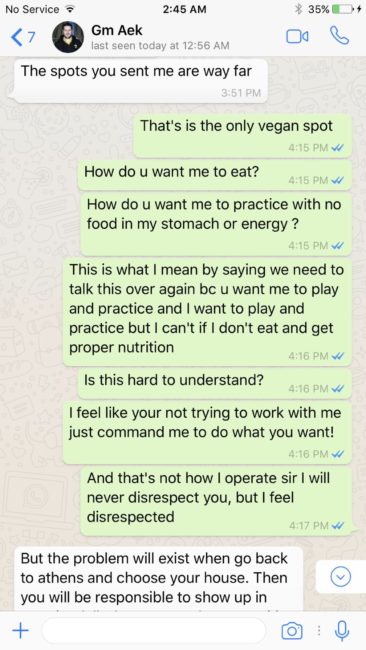
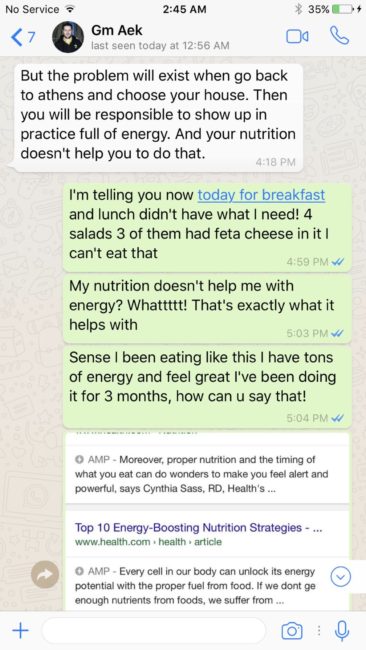
Early then deleted the conversation, in which he also explained to the executive that he had lost 7 pounds since he got there because of the poorly cooked meals by the team. Even after deleting, this tweet remained on his profile.
Stand up for ur mental & physical health, urs & others & watch ppl literally turn ur passion to do the right thing into How they feel abt it
— Cleanthony Early (@Clearly_Balllyf) September 9, 2017
Early wasn’t sad about the end of his relationship with AEK Athens, as he expressed on Twitter. He was fully convinced of his reasons and he’s right to think so. The Greek team showed poor judgment in this situation; they wanted to get rid of Early because they didn’t want to deal with his “fancy” vegan diet. They just wanted Early to play and shut up, without complaining about anything. But Early had the courage and the force to stand up and saying that he wasn’t going to stay there with that kind of treatment. When you deal with a professional player, you should respect his decisions. Early has a vegan diet, so what’s the problem? He’s a pro, he knows how to handle his body. The team should have helped him by providing good vegan meals and not trying to force him into changing his personal food routine.
Early is now looking for a new team. He made a quick visit to Cantù in Italy to meet the team executives but decided to move on and keep looking for a better situation. Considering the state of things in Cantù (which I’ll expand on shortly) he probably made the right decision.
Now, let’s take a look at another example of the situation of American players in Europe. We’re going to talk about Charles Thomas, an Arkansas alum with a long career overseas. Thomas spent last season in Israel with Maccabi Rishon LeZion, averaging 11.8 points and 3.6 rebounds per game in FIBA Basketball Champions League. On Aug. 31, Thomas signed with Italian team Pallacanestro Cantù, a team run by Russian owner Dmitrij Gerasimenko. Thomas has played in various countries over the course of his career. In many of those countries, basketball is not exactly the most popular sport, and playing in those places can be a real challenge. But when you’re a pro, you do your job no matter what, especially if you have to support your family.
Thomas recently expressed his frustration about the situation he’s facing in Cantù during an interview with Eurostep Podcast, a podcast about European basketball and life overseas for American players. The podcast is hosted by another American player overseas, Anthony Goods. Here’s what Thomas said during the interview:
“The last couple of weeks here in Italy have been really rough, man. I’m currently in a hotel where I’ve been lived in the last four weeks, the next will be the fifth here. I don’t have anything really mine here. I’m living 30 minutes outside of the town. When I got here they told me that I’d get an apartment, that I was gonna get a car and my medical payment. But after weeks, nothing that they promised to me has arrived. I voiced my concerns via social media a couple of weeks ago, I had a meeting with the team, they told me that they understand the problem and to wait two or three days for the situation to be fixed. But now weeks have gone and I’m still not getting paid and they never kept their word”.
“I blame FIBA for this because they do nothing about these situations and it’s just unfair”
The American big man is now expecting to part ways with Cantù, a source told Def Pen Hoops. A very predictable end for a player that made only one mistake this summer: Signing with a team in complete disarray. Another American player with tons of experience in Italy, Mike Hall, gave his public service announcement about Cantù via Twitter
Euro hoopers: If your agent says Cantu you should not only look for new representation, you should probably fight him for disrespecting you
— MH7 (@_Michaelinho) September 18, 2017
These are just two examples of a situation that is getting worse year after year for American pros playing overseas. European teams need to act differently in dealing with these players, otherwise it won’t be a surprise to see many more American players opting to sign in China or Australia, ignoring the Euro route. With the creation of two-way contracts in the NBA, Europe has another threat to deal with. But the main issue remains the way teams try to establish a professional relationship with the players. You cannot ask a player to give his best on the court while he isn’t being paid and doesn’t even have a decent apartment to live in. American players overseas need to work together and create a union to deal with these situations, because FIBA has failed in providing real help. Also, agents need to do a better job of abstaining from signing deals with teams that are well-known as “nonpaying clubs.”
From here, the only viable option for Euro teams is to build real relationships with the American players and treat them like human beings, rather than just bodies to use on the court. Because, otherwise, the trend of players playing in China and the G League will continue, with more and more American players avoiding the Euro route, lowering the level of basketballA interest and competition in the old continent.

